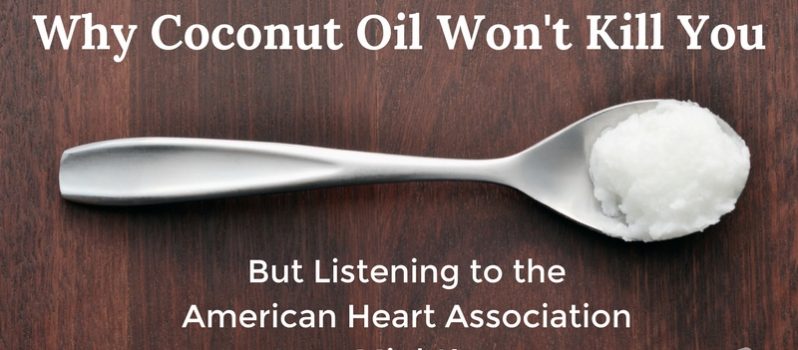When it comes to maintaining the proper function of the heart everybody seems to listen up. However, there are still many people who don’t seem to care too much about how to keep their heart healthy. Sometimes, it even takes a medical doctor being the president of the American College of Cardiology to learn from his patients in order to make a radical change in his diet habits. In fact, that’s what happened as this MD went vegan only after he had watched one of his patients decreasing essentially his cholesterol level after adopting a plant-based diet. There are many more reasons why a plant-based diet can reduce the risk dramatically to suffer from any heart disease.
“Kim Williams, MD, a cardiologist and the president of theAmerican College of Cardiology, became a vegan in 2003, after finding out his cholesterol levels were high — and it changed his life. He went vegan because he was impressed by how much heart scans of one of his patients improved after she tried a plant-based diet. She went from a high-risk of heart disease to normal risk in a matter of months.
A plant-based diet can decrease plaque in the blood vessels, and lower risk of diabetes and stroke, says Dr. Williams. “If we have a choice, it seems like a vegetarian diet is better.”
The good news for avid meat eaters is that you don’t have to completely quit meat to reap the benefits of a plant-based diet. Simply reducing the amount of animal products in your diet lowers the risk of high blood pressure. Then, as you start replacing meat with fish, or switching to vegetarian, or go completely vegan, your heart-disease risk gradually goes down, Williams says.
“People say eat everything in moderation, and I used to tell people that moderation results in moderate disease instead of severe disease,” he says.
Following are eight of the many ways a plant-based diet can protect your heart from disease.
1. Plants Have Less Saturated Fat
Saturated fats are ones that are “saturated” with hydrogen. These fats or oils are typically solid at room temperature. They are found in meat and animal products like beef, lamb, butter, cheese, and high-fat dairy products, but also in coconut oil.
According to medical experts at the American Heart Association (AHA), eating saturated fats increases the amount of cholesterol in your blood. And this, in turn, raises your risk of heart disease and stroke. The organization recommends having only about 13 grams (gm) of saturated fat per day for people on a 2,000-calorie diet.
AHA dietary guidelines suggest eating four to five servings each of vegetables and fruits, six to eight whole-grain servings, two to three dairy-based foods, and less than 6 ounces of meat, poultry, or seafood per day. This diet clearly relies heavily on plant-based foods.
2. You Can Eliminate Cholesterol From Your Diet
Our bodies need a small amount of cholesterol to function, but most of us make enough on our own without adding it through our diets. Excess cholesterol comes from the food we eat — and it’s good to know that cholesterol is found only in animal products, not plants.
Why does excessive cholesterol matter? According to the American Heart Association, having high cholesterol in your blood is a major risk factor for heart disease, stroke, and heart attack.
The bad form of cholesterol (called LDL) is one of the products that make up plaque, along with fat, waste products, and calcium. When plaque builds up in the arteries (which carry blood away from the heart) it can cause them to block and harden, leading to heart attacks or strokes.
The link between cholesterol and heart disease has been debated, however. The most recent recommendation of the Dietary Guidelines Advisory Committee took out cholesterol limits of 300 mg per day because “available evidence shows no appreciable relationship between consumption of dietary cholesterol and serum [blood] cholesterol.” The report noted that cholesterol is no longer a “nutrient of concern.”
Most nutrition experts do agree, though, that replacing fatty meats with plant-based foods is a healthy change.
According to the Department of Agriculture (USDA), low blood cholesterol levels can be achieved by replacing saturated fats and oils with monounsaturated and/or polyunsaturated fats (found in things like avocadoes, olive oil and nuts). Less then 10 percent of daily calories should come from saturated fats.
3. Plants Increase Fiber in Your Diet
A well-rounded, plant-based diet should also increase the amount of soluble fiber you get. And increasing fiber is one way to reduce the bad cholesterol circulating in your body, says Joan Salge Blake, MS, RD, clinical associate professor at Boston University Sargent College of Health and Rehabilitation Sciences, and a spokesperson for the American Dietetic Association.
Fiber interacts with the bad cholesterol in your gastrointestinal (GI) tract and helps remove it more quickly from your body, she says. This decreases the overall amount of bad cholesterol absorbed in your body.
Soluble fiber is found in foods like beans, lentils, fruits, vegetables, and nuts. Salge Blake recommends making healthy food swaps, like reducing or cutting meat out of chili and adding beans to the pot.”
Read the full story at everydayhealth.com!







